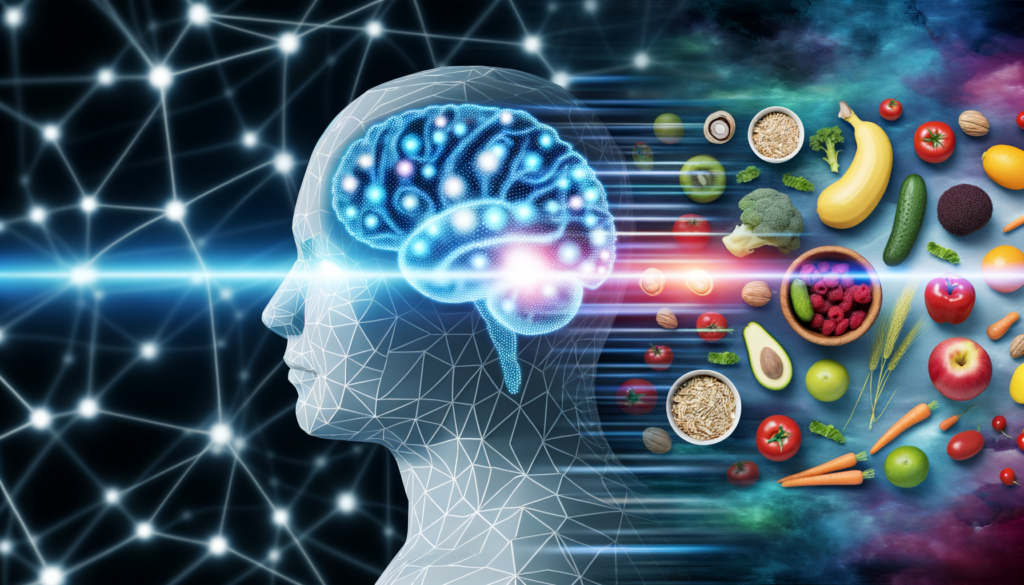Navigating the Complexities of Calorie Intake in Eating Disorder Recovery
Recovering from an eating disorder is a multifaceted journey that involves not only mental health rehabilitation but also nutritional rehabilitation. Understanding and managing calorie intake is a crucial aspect of this process. In this article, we will delve into the importance of calorie considerations for individuals recovering from eating disorders, providing actionable advice and real-world examples to support this delicate and often challenging phase.
The Importance of Nutritional Rehabilitation
Nutritional rehabilitation is a cornerstone of eating disorder recovery. It involves restoring a healthy relationship with food and ensuring the body receives the necessary nutrients for optimal functioning. This process is highly individualized and must be tailored to the specific needs and health status of each person[1).
For individuals recovering from eating disorders such as anorexia nervosa, bulimia nervosa, or binge eating disorder, nutritional rehabilitation often starts with a comprehensive assessment by a healthcare team. This team may include a psychologist, psychiatrist, registered dietitian, and other specialists. The goal is to create a personalized meal plan that addresses nutritional deficiencies and promotes healthy eating habits.
Calorie Needs and Energy Balance
Calculating and managing calorie intake is critical during the recovery process. The calorie needs of an individual recovering from an eating disorder can vary significantly depending on factors such as age, sex, weight, height, and activity level. For example, someone who has been underweight due to anorexia may require a higher caloric intake to support weight gain and overall health.
Tools like the Calorie Calculator Cloud can be invaluable in determining the appropriate daily calorie needs. These calculators take into account various parameters to provide a personalized estimate of calorie requirements, helping individuals and their healthcare providers make informed decisions about their diet.
Mental Health Considerations
The mental health aspect of eating disorder recovery cannot be overstated. The process of adjusting to a new eating plan can be emotionally challenging and may trigger anxiety, guilt, or other negative emotions. It is essential to work with a mental health professional who can provide support and strategies to manage these feelings.
Organizations like the National Eating Disorders Association offer resources and support for individuals and families navigating the recovery process. These resources include treatment providers, support groups, and educational materials that can help individuals understand and cope with the emotional aspects of their recovery.
Real-World Examples and Case Studies
A common scenario in eating disorder recovery involves a young adult who has been struggling with anorexia nervosa. This individual may have been severely underweight and malnourished, requiring immediate nutritional intervention. Here’s how a comprehensive approach might look:
- Initial Assessment: A thorough medical and psychological evaluation to determine the individual’s current health status and nutritional needs.
- Personalized Meal Plan: A registered dietitian creates a meal plan that ensures the individual is consuming the necessary calories and nutrients for recovery. This plan may include regular meals and snacks, with a focus on nutrient-dense foods.
- Monitoring and Adjustment: Regular check-ins with the healthcare team to monitor progress, adjust the meal plan as needed, and address any emotional or psychological challenges that arise.
- Mental Health Support: Ongoing therapy sessions to help the individual cope with the emotional aspects of recovery and develop a healthier relationship with food and their body.
In another example, an individual recovering from bulimia nervosa might benefit from a structured eating plan that includes regular, balanced meals to help stabilize their eating habits and reduce the likelihood of bingeing and purging. Tools like food diaries and mobile apps, such as MyFitnessPal, can help track food intake and provide insights into eating patterns.
Challenges and Solutions
Recovering from an eating disorder is not without its challenges. Here are some common obstacles and potential solutions:
- Food Anxiety: Working with a therapist to develop coping strategies and gradually exposing oneself to feared foods in a controlled environment.
- Social Eating: Practicing social eating in supportive settings, such as with family or in a support group, to build confidence and comfort around food in social situations.
- Body Image Issues: Engaging in body-positive therapies and activities that promote self-esteem and self-acceptance, such as yoga or mindfulness practices.
- Relapse Prevention: Developing a relapse prevention plan with the healthcare team, which includes strategies for managing stress and triggers.
Resources and Support
Access to resources and support is vital for successful recovery. Here are some additional resources that can be helpful:
- National Eating Disorders Association (NEDA): Offers a helpline, online support groups, and a treatment provider directory.
- Eating Disorders Coalition (EDC): Provides advocacy, education, and support for individuals and families affected by eating disorders.
- Calorie Calculator Plans: Offers various plans to help individuals track and manage their calorie intake effectively.
- Academy of Nutrition and Dietetics: Provides information on finding a registered dietitian and accessing nutrition resources.
Conclusion and Next Steps
Recovering from an eating disorder is a journey that requires patience, support, and a comprehensive approach to nutritional and mental health rehabilitation. By understanding the importance of calorie considerations and leveraging the right resources and tools, individuals can navigate this challenging process more effectively.
If you or someone you know is recovering from an eating disorder, it is essential to seek professional help. Consult with a healthcare team, including a registered dietitian and mental health professional, to develop a personalized recovery plan. Utilize tools like the Calorie Calculator Cloud to manage calorie intake accurately and ensure you are meeting your nutritional needs.
Remember, recovery is possible with the right support and resources. Take the first step today by reaching out to organizations like NEDA or consulting with a healthcare provider to begin your journey towards a healthier, more balanced life.








